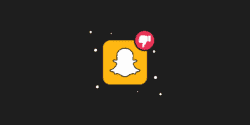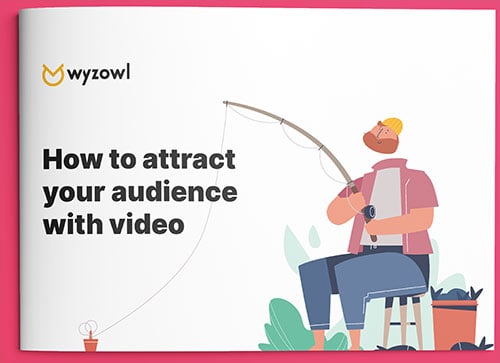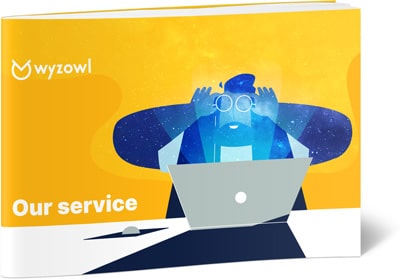Last updated on 10th November 2023
In this article we’re going to go through 19 ways to make event marketing a success.
Events, either in-person or virtual, are an amazing opportunity to connect with potential customers and give them a unique experience that can increase awareness, trust, and ultimately sales.
According to a survey by Bizzabo of almost 500 marketers, 55% said they host three or more events per year. And 95% believe that in-person events can have a major impact on achieving primary business goals.
But, before a successful event must come a successful event marketing strategy! So, without further ado, here are 19 ways to make event marketing a success…
Before your event
Arguably, the most important time to market your event is before it takes place. This will help you to increase attendees, generate a buzz around your event, and also give you an idea of numbers so you can calculate an estimated ROI.
1. Understand your attendees
First things first: WHO are you marketing your event towards?
You need to understand your attendees inside and out so that you know the answers to important questions, like:
- What do they like?
- What matters to them?
- What’s their budget?
The more you research and understand your attendees, the better you’ll be able to market your event towards them.
It can be helpful to create a “buyer persona” at this stage. This is a fictional representation of your ideal customer that you can keep in mind when creating your marketing materials. The more specific you can be, the better. Hubspot has a great tool that can help you get started.
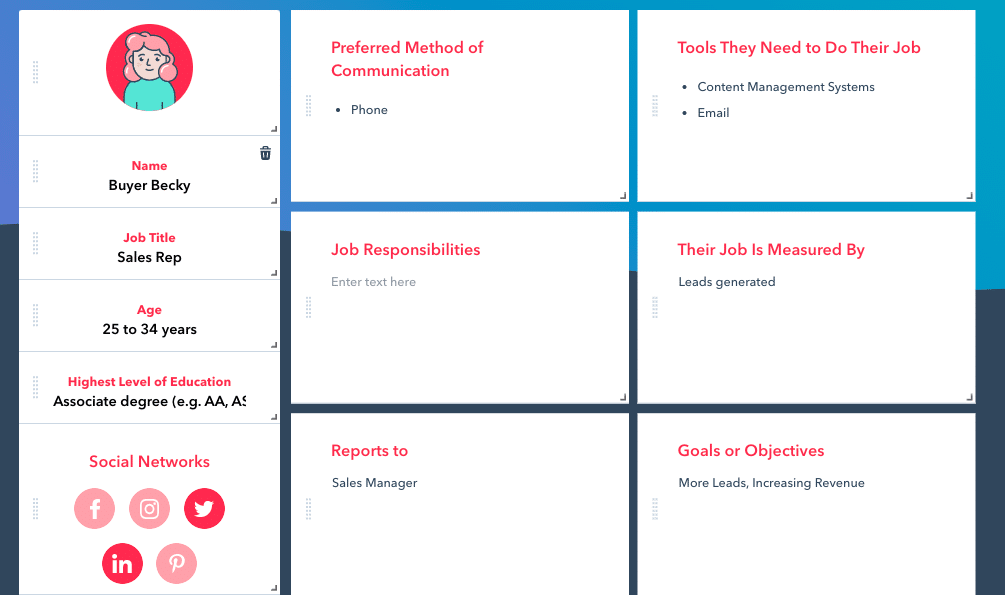
It’s helpful to create multiple buyer personas that reflect different types of attendees, from those that are just becoming aware of your business to those that have attended many of your events in the past.
2. Formulate an elevator pitch
An event elevator pitch is a succinct summary of your event that can be used to explain it to new people who have never heard of it before.
Your elevator pitch must include all of the important information (the who, what, when, where, and why), it must be engaging, and it must be memorable.
A great way to formulate an elevator pitch that is both succinct and memorable is to create a video. Here’s an example of an event trailer we made for LCI:
Videos help us to take in information faster. And, according to our 2022 Video Marketing Survey, 73% of people prefer to watch a short video when it comes to learning about things.
What’s more, creating a video out of your elevator pitch also makes it highly shareable. Our survey found that people are twice as likely to share video content with friends than any other form of content!
3. Use social media
Speaking of sharing, you can use social media to spark interest in your event and get people talking.
Social media is an amazing – FREE! – tool that you can use to reach so many people. Create simple and shareable posts to capture attention, like this one from Nintendo:
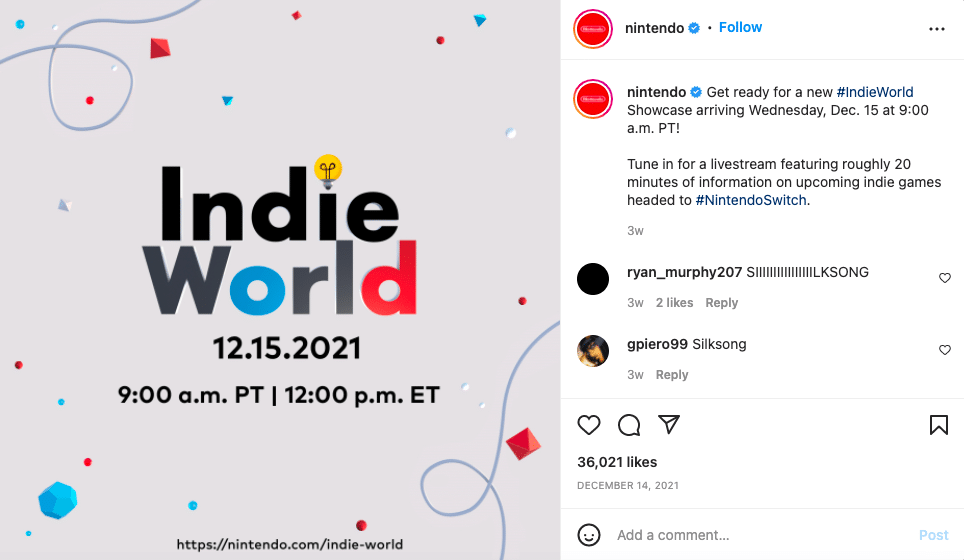
It also helps to create a personalised hashtag for your event, like the #IndieWorld hashtag used above.
This encourages people to share posts of their own about the event and makes it easy for you to search through these posts to find out what people are saying:
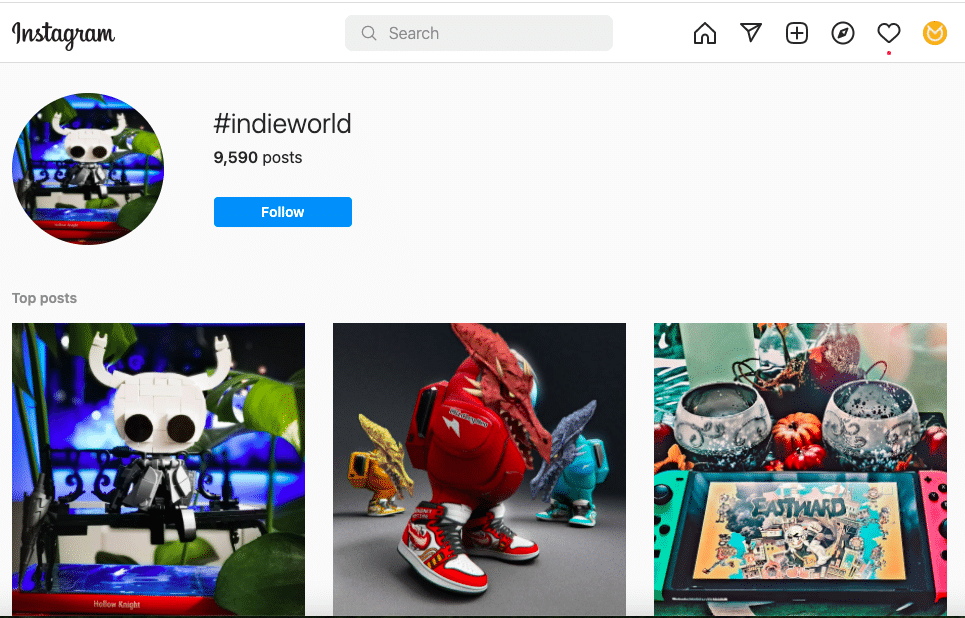
As your event gets closer, you can start creating even more hype by sharing countdown posts that encourage people to get tickets while they still can:
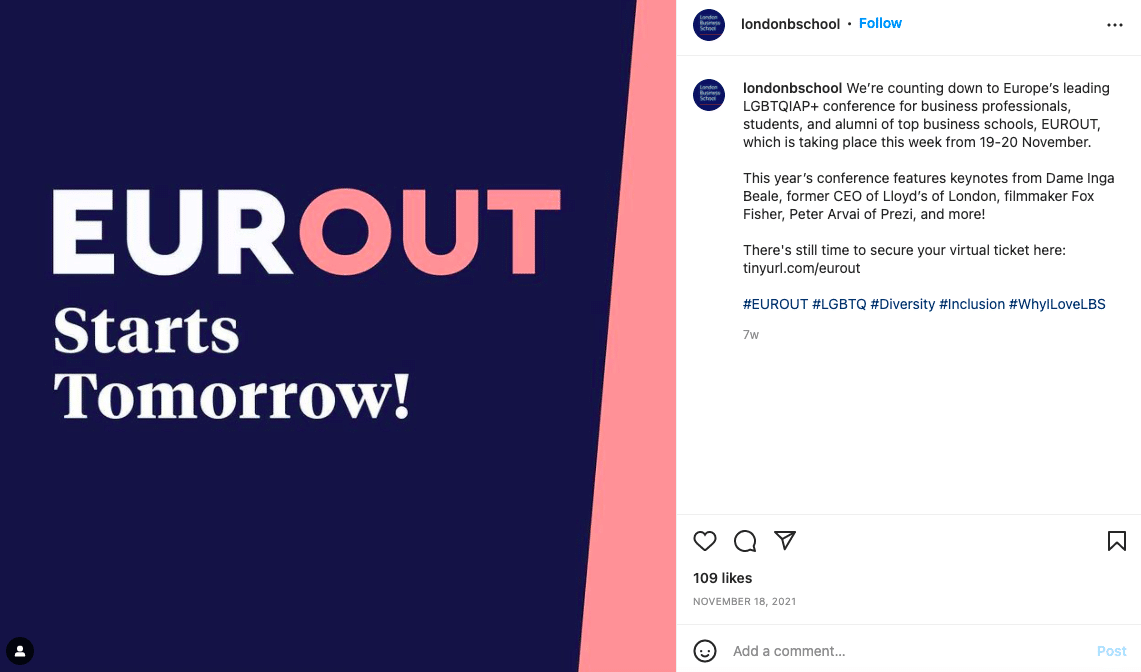
4. Be clear about the specifics
Always, when marketing your event, be clear about the specifics. Every piece of marketing collateral that you release must include the information that people need to make a decision about attending your event.
This includes things like:
- Where your event is (the location or the virtual platform)
- When it takes place (be sure to adjust for different time zones)
- How much tickets cost (if anything)
- Who will be there (guest speakers, for example)
All of this information, and anything else you deem important, should be front and centre of your marketing efforts.
5. Create a landing page
When you start marketing your event, it needs a place to live online. This should be a landing page on your site where people can gather all of the information they need to attend.
Your landing page should include an itinerary or agenda, information about the location or venue, a list of speakers, and more. Here’s an example from the GQ Heroes event:
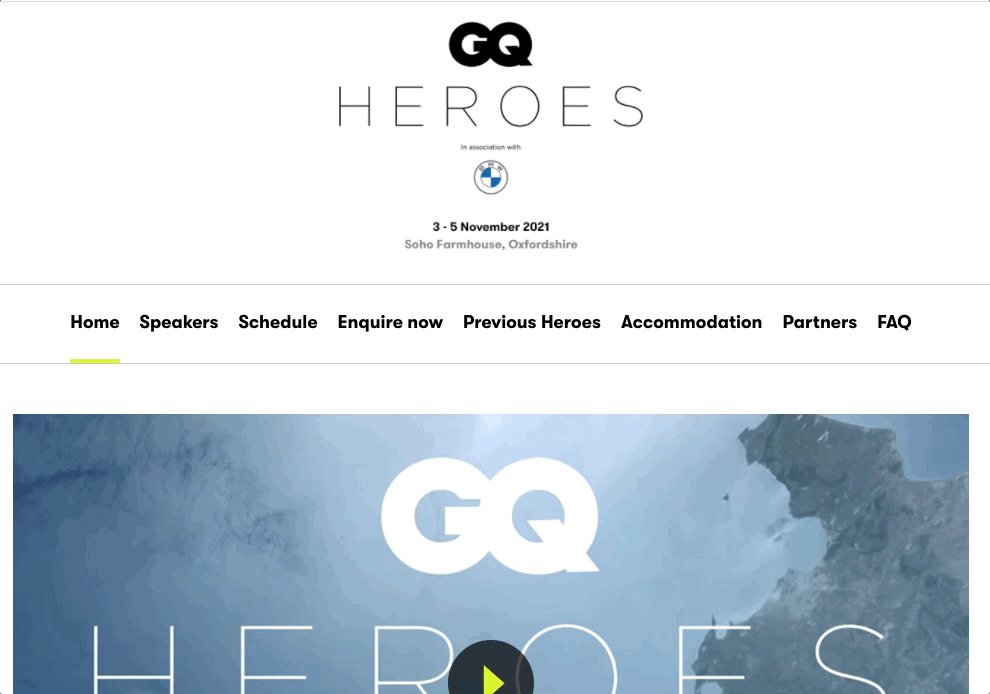
At the top of the page is an engaging short film that gets viewers pumped for the event. Check it out:
A professional event video like this not only creates hype for the event, it also increases the amount of time people spend on the landing page – and that’s crucially important for SEO.
The more optimised your event landing page is for search, the more easily it will be found by potential attendees.
6. Send out emails
If you have a list of existing customers then email marketing can be an effective tool for increasing sign ups to your event.
You may think of email as a bit ‘old hat’ by now, but it’s still as important as ever. In fact, according to a Hubspot study, 4 out of 5 marketers said they’d rather give up social media marketing than email marketing.
Similarly, a Litmus study found that 78% of marketers said email is important to overall company success.
You can start marketing your upcoming event by including some information at the bottom of your regular email content, like this simple example from Blue Pencil:
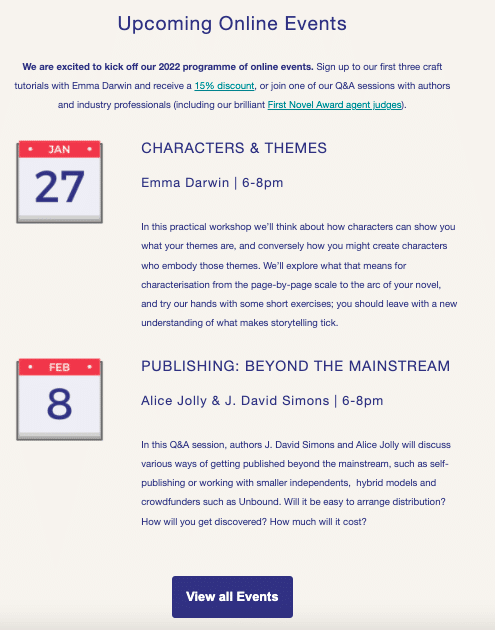
And then, as your event draws nearer, try to create some excitement and urgency with exclusive email offers. Here’s an example from Chopra:
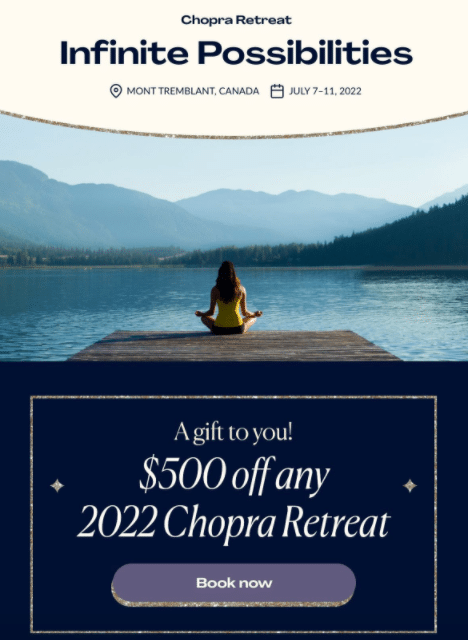
7. Work with partners
There’s only so much self promotion you can do! To increase credibility and reach a wider audience, try to work with affiliate brands and influencers.
Influencer marketing has been growing in popularity in recent years, as more and more people have influencers that they follow and trust. And, while huge influencers can break the bank when it comes to fees, so-called ‘micro-influencers’ are more accessible and there’s proof that they even have better engagement rates.
According to a study by Influencer Marketing Hub, micro-influencers (with 15,000 followers or less) have an average engagement rate of 3.86% on Instagram, while mega-influencers (with more than one million followers) have an engagement rate of just 1.21%.
This disparity is even larger on TikTok, with micro-influencers receiving a huge 17.96% engagement, compared to only 4.96% for mega-influencers.
If you’re interested in finding out more about TikTok, check out our article: What is TikTok? A Complete Guide for Marketers.
8. Talk to the media
In addition to reaching out to influencers, it can also help to advertise your event on industry-related sites and in magazines.
You could take out an ad or write a guest post. A guest post is a piece of content that you write for another company, generally designed to benefit that company while also linking back to something you want to promote, in this case your event.
Another form of media that’s extremely popular is podcasting. As of 2021, 56% of Americans aged 12-34 listen to at least one podcast a month.
By reaching out to the podcasters in your industry, you could arrange to be interviewed for an episode (and promote your event in the process!)
9. Run competitions
Another great way to drum up attention and get people excited about your upcoming event is to run competitions.
Competitions on social media get a lot of attention because you’re actively asking followers for engagement in exchange for something they want – like tickets to your event!
Here’s a perfect example of event marketing from The Reading Festival. The event partnered with an affiliate brand (Co-op) and an influencer, and also created an exciting competition to market their event:
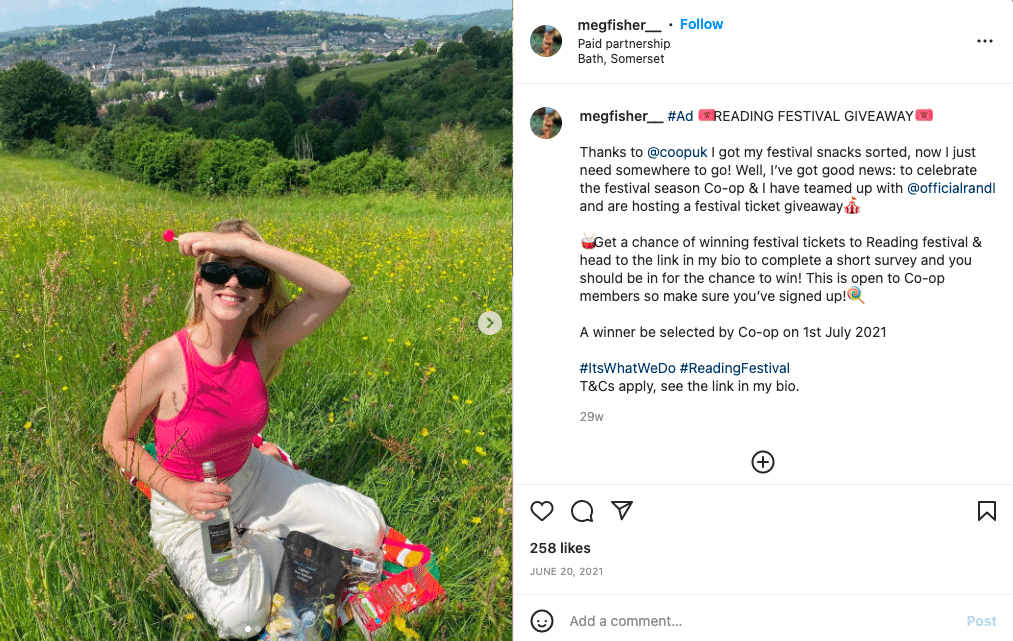
Grouping marketing tactics like this together can help you to become more successful in your social media efforts.
You can also promote your competitions via email. According to Wishpond, contest emails have the highest average open rate of 45%, when compared to other email campaigns.
Be sure to include some exciting keywords in the subject line to encourage people to click and open!
10. Create special tickets
Creating different types of tickets can help you to appeal to a wider audience of people, boosting sales and also encouraging people to talk more about your event.
Some ideas for special tickets are:
- Early Bird – this is the process of selling advance tickets at a lower price. It creates a sense of urgency and encourages people to purchase tickets sooner rather than later.
- Group Tickets – this is the process of giving a discount for multiple ticket purchases. It encourages people to invite others, increasing the number of attendees.
- VIP Tickets – this is the process of putting together a package that is more expensive but includes more value for the buyer. It creates a sense of exclusivity that could appeal to some attendees.
The more personalised you can make your special tickets, the more they’ll stand out. Here’s an example from Jazz Cavities:
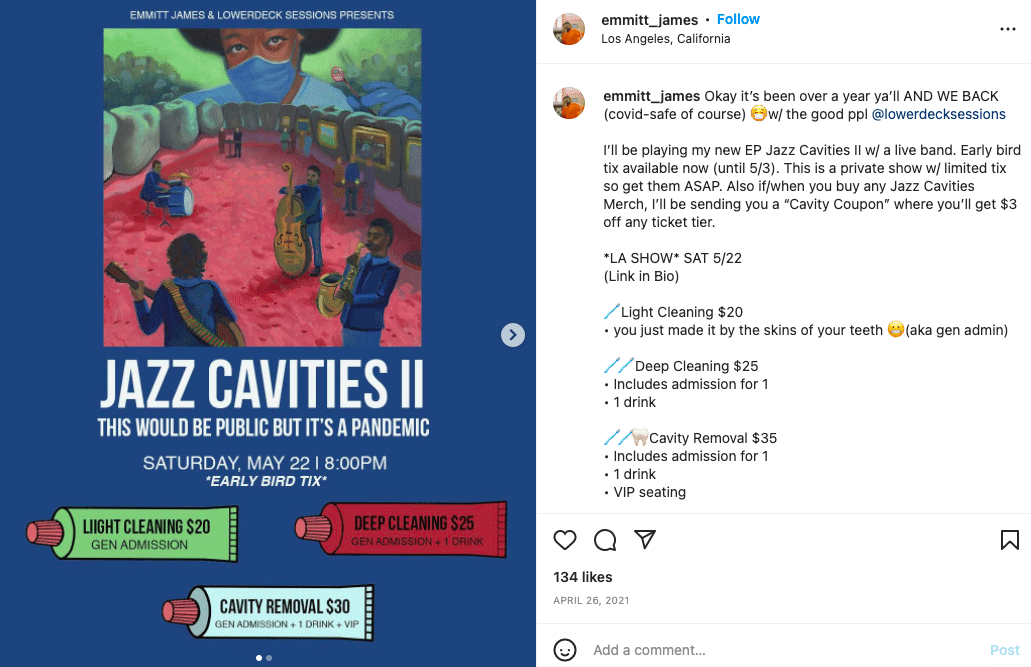
Both the artwork and the ticket names play on dental puns, making this post about the event unique and appealing.
The post also clearly outlines what is included with each ticket. It’s important to offer this kind of transparency so that people know exactly what they’re signing up for.
During your event
Your event may be in full swing, but that doesn’t mean you should forget about marketing. You can still generate a lot of attention for your event by updating your audience on what’s happening in real time.
11. Stay active on social media
Posting regularly on social media throughout the day will give your event more traction online.
By sharing images and videos, you can give people who didn’t get the chance to attend a little taste of the day – and maybe encourage them to book a ticket for next year!
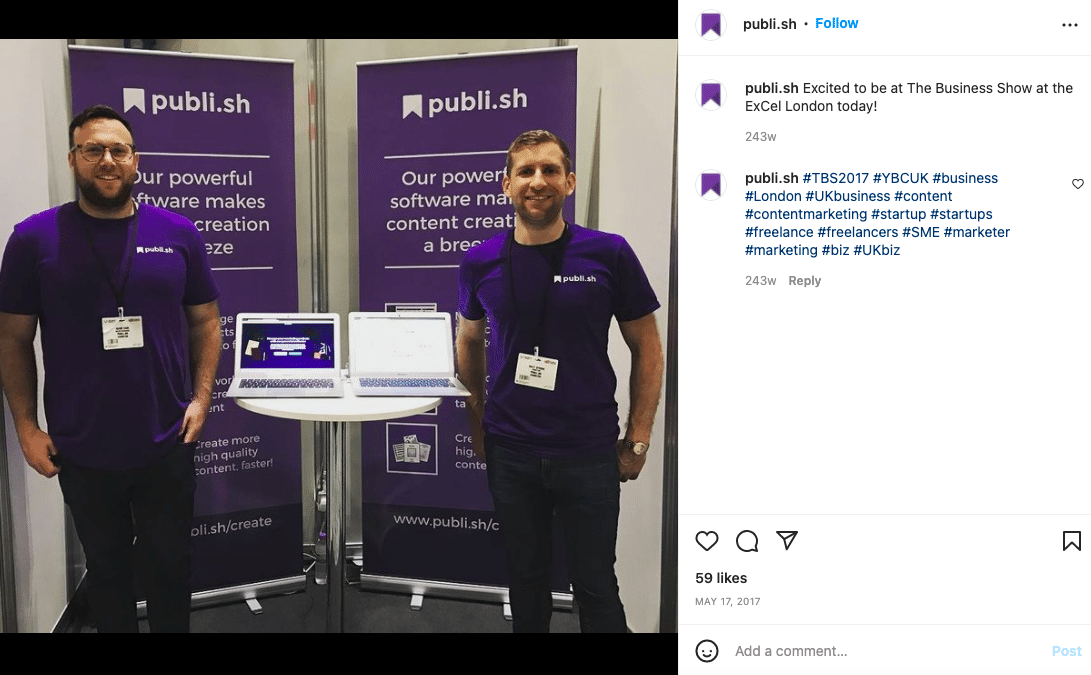
By continuing to use the hashtag that you set up before your event, you can encourage attendees to share their experiences too. And you can then search for the hashtag to find and share these posts to the rest of your audience.
12. Run a prize draw
Sometimes, getting people to your event is half the battle. You also need to engage attendees once they are there, and a prize draw is a great way to do this.
A prize draw works on many levels. For starters, it gives you a talking point with attendees and also the chance to collect their contact details (so you can build on your relationship after the event).
A prize draw can also create a buzz around your stall or booth. It can get people talking and encourage them to stick around for longer. Of course, the better the prize, the more people you’re going to attract!
13. Rebrand for the day
Another awesome way to keep your event top-of-mind is to rebrand across your site and social media pages for the entirety of your event.
Update your website homepage, social media cover images, and profile images to show off your event branding and celebrate your event online.
After your event
So, your event’s over and done with, but you can’t rest just yet! There’s a lot of potential to build on the connections you made at your event, and this window doesn’t remain open for long.
These post-event marketing strategies should help you make the most of your success!
14. Create post-event content
After your event has passed, you should have tons and tons of content to share with your audience online.
As you’re no longer trying to encourage people to attend the event at this point, you can showcase all of the great things that happened – giving people a taster of what the event was like and possibly encouraging them to want to sign up in future years.
Post-event content can range from a write-up on your blog, short videos for social media, interviews with attendees about their experience, and even testimonials.
The GQ Heroes post-event page contains great testimonials and exclusive video content from the event:
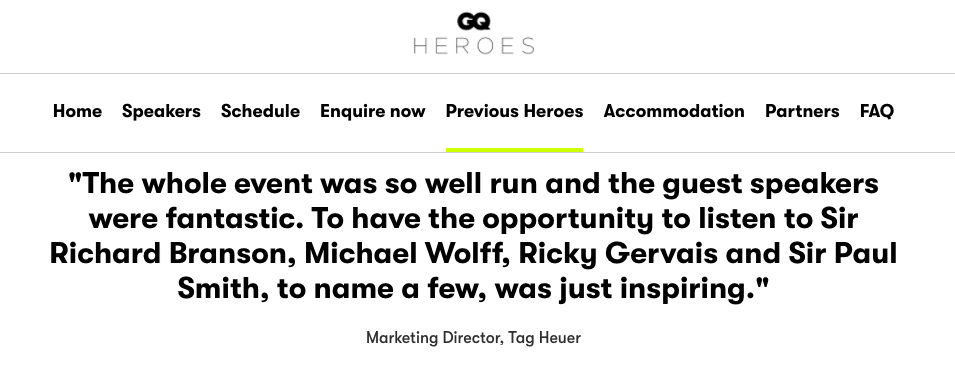
15. Follow up via email
Don’t forget to follow up with guests via email shortly after the event to thank them for their attendance, ask for feedback, and find out if they’re interested in your products or services.
You’ll no doubt make some great connections on the day and it’s important to capitalise on those and strengthen them before time runs out.
A friendly, personal email a couple of days after the event can help to open up that relationship and possibly direct an attendee towards becoming a loyal customer.
16. Create a video
An engaging video recap of your event – almost like a highlight reel – is the perfect piece of content to share online. It shows your audience how amazing your event was and it also encourages people who attended to share, like, and comment.
You could create a super in-depth video that makes online viewers feel as though they were there, like Apple does with their events:
Or you can make a fun, short, engaging and shareable video that highlights the best parts of the day, like this one from Microsoft:
All you need to capture this footage is a videographer on site and a way to dynamically edit the footage after the event. If you need help with that, take a look here.
17. Create event-only offers
When emailing your attendees after the event, why not sweeten the deal by sending out event-only offers?
By offering attendees special discounts and promotions in the days after your event, you can benefit from the connections made to increase sales and event ROI.
18. Create a post-event page
As touched upon above, creating post-event content is a great way to market your event after the fact. Having a post-event page means you can collate all of this content and keep it online for people to find in the weeks, months, and even years after.
This can help you to market future events and it gives potential customers an insight into what to expect. Your post-event page should include photos of past speakers, video content of the event, memorable moments, and attendee testimonials.
19. Send out a survey
Finally, send out a survey to your attendees to gather important feedback about your event. This will help you to understand what worked and what didn’t so you can improve everything next time.
It’s easy to create and send a survey from a tool like SurveyMonkey, or even Google Forms. Both tools are very easy to use. You can use a survey template or create one from scratch to get answers to questions that matter to you, for example, “what did you enjoy most about the event?” or “how could this event be improved?”
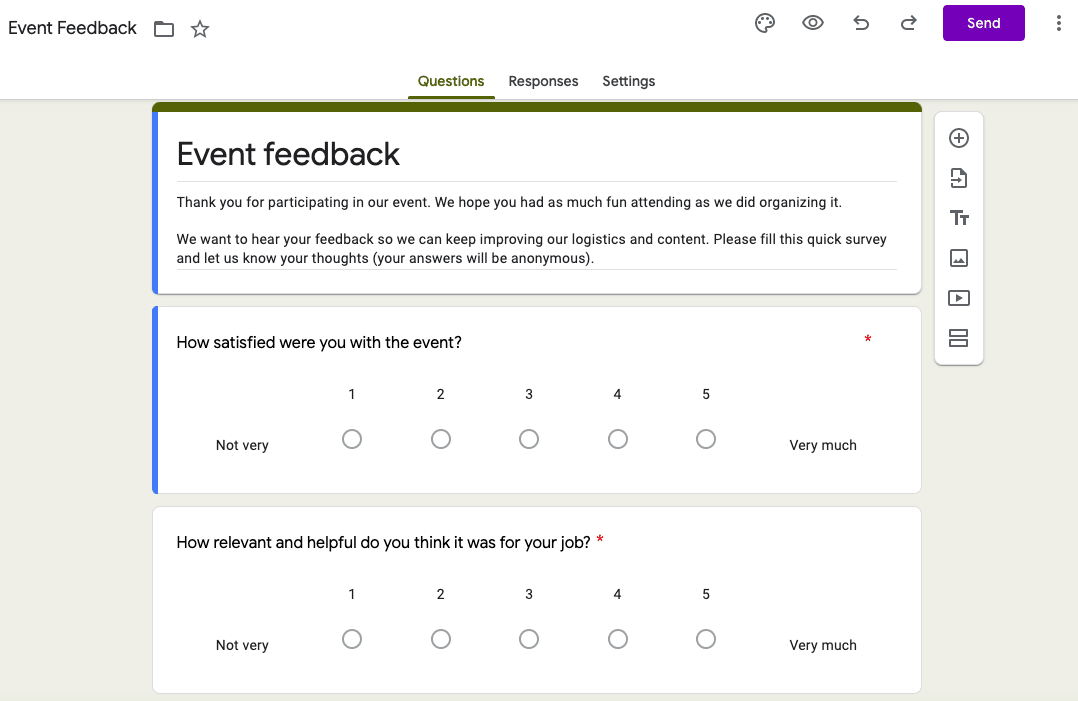
Final thoughts
Hosting an event is a lot of fun, but it’s also a lot of work. And marketing is a huge part of that battle.
As the examples in this article have shown, an amazing video can really help your event to stand out and give you the best chance of making it a success.
To find out more about how video marketing can help you, take a look at our event video services page.



